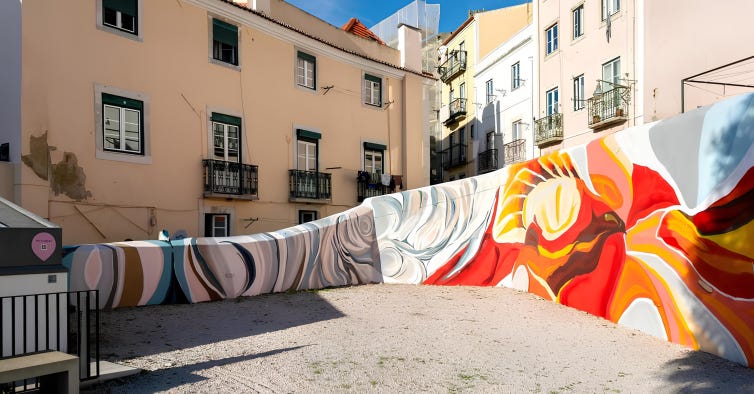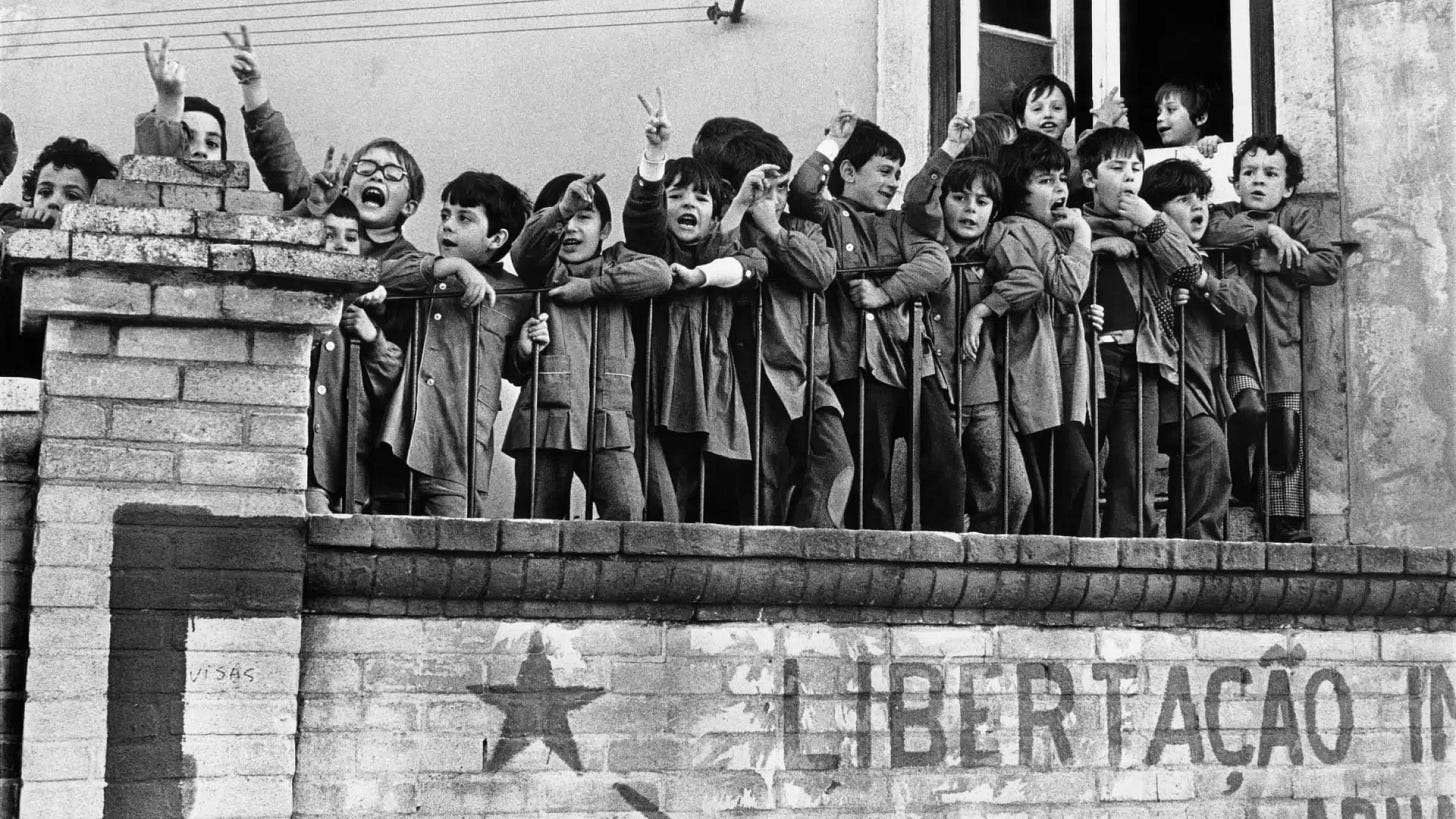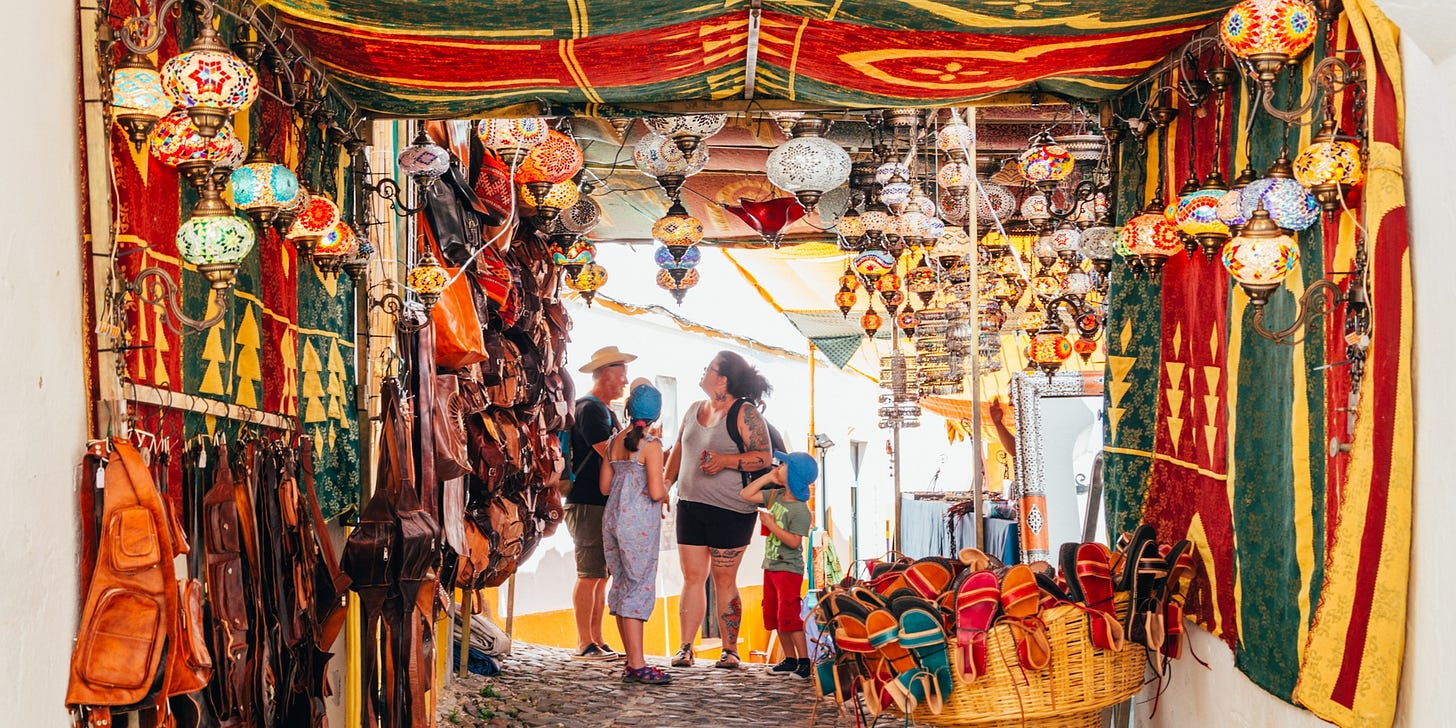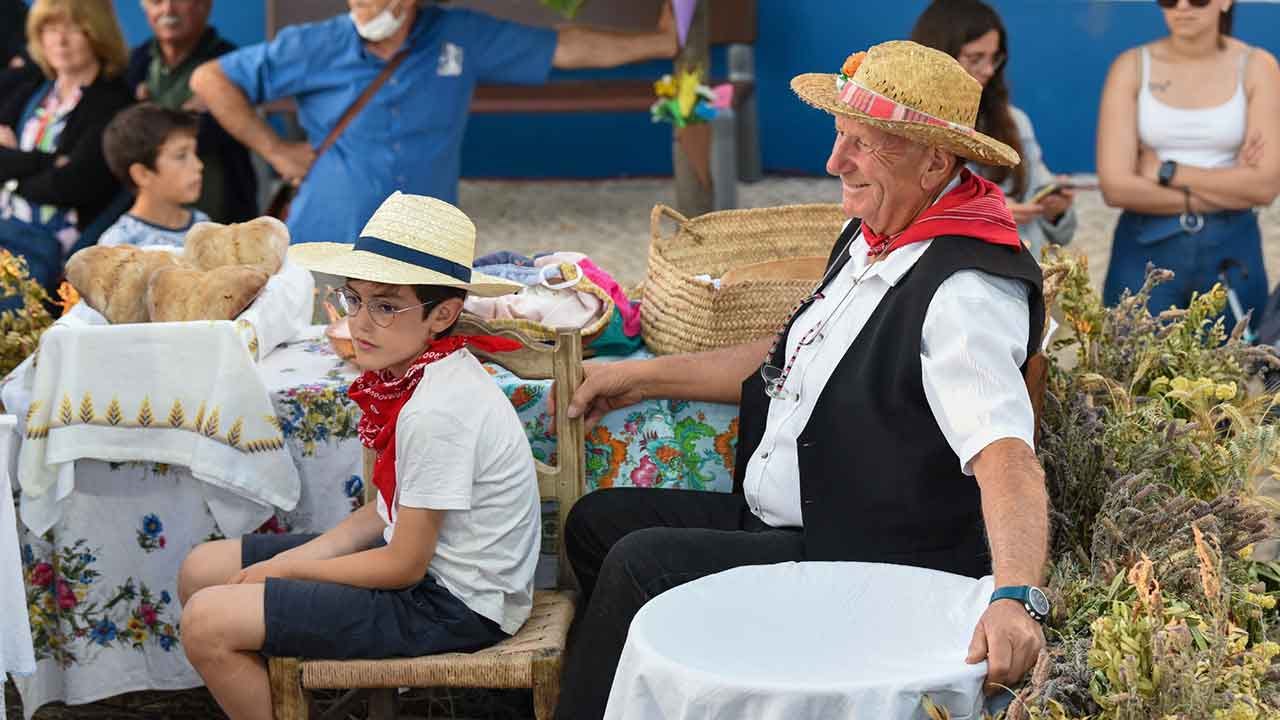Friday Briefing: Was immigration key to Chega’s rise?
Good morning and welcome to PORTUGAL DECODED. For years, the Portuguese have watched the far-right rise abroad. Now, it’s happening here. How is Chega’s rise being interpreted?
TALK OF THE TOWN

If you enjoy reading PORTUGAL DECODED, please consider donating to keep it free and independent – your generosity means everything!
POLITICS
For the first time since 1974, the right holds a two-thirds majority in Parliament, enabling it to revise the Constitution. This week, the Liberals announced plans to initiate revisions; while the ruling AD said it’s open to talks with all parties (More).
Aligning with the EU’s increased pressured on Israel, Portugal condemned the Gaza crisis and summoned Israel’s ambassador after IDF warning shots targeted an international convoy carrying a Portuguese diplomat (More).
SOCIETY
The launch of the EU’s new biometric border control system has caused long delays at Portuguese airports. Despite disruptions, officials call it a key step toward enhanced security and digital transformation (More).
Hundreds of immigrants are currently sleeping outside consular offices in Lisbon and Porto to authenticate criminal records, a required step to advance legal residency processes managed by AIMA (More).
ECONOMICS
The European Commission cut Portugal’s 2025 growth forecast and warned of fiscal deterioration, citing tax cuts and spending plans that risk reversing recent budget surpluses despite continued strong economic performance (More).
Portugal’s Non-Habitual Resident (NHR) tax regime saved beneficiaries a record €1.74 billion in 2024. A new version now offers similar benefits, but only to skilled professionals in strategic sectors, while excluding pensioners (More).
CULTURE AND SPORTS
Japanese architect Kengo Kuma will lead the revival of three abandoned villages in Portugal’s Serra da Lousã, transforming them into eco-friendly tourist destinations while preserving local heritage, landscape, and traditional materials (More).
Fresh off Sporting’s league title celebration and its heated clash with Benfica two weeks ago, the Lisbon rivals will meet again this Sunday in the Portugal Cup Final at 17.15 at Jamor Stadium, Oeiras (More).
If you enjoy reading PORTUGAL DECODED, please consider donating to keep it free and independent – your generosity means everything!
DECODER
What does Chega actually defend?
Chega, which is part of the European Parliament’s far-right group Patriots for Europe, identifies as a nationalist, conservative, and personalist party. A central focus of its agenda is combating crime, supporting law enforcement, and addressing corruption, overstaffing in the public sector, and perceived abuse of the welfare system. Chega supports harsh punitive measures, including life imprisonment, the death penalty, and chemical castration for repeat rapists. On social issues, the party opposes abortion, same-sex marriage, and gender identity policies, aligning itself with conservative Christian values and presenting itself as a defender of Western civilization. Chega is strongly critical of multiculturalism and Islamist extremism, and calls for stricter border control, zero tolerance on illegal immigration, and the deportation of immigrants with criminal records or who are economically inactive. It supports limited immigration from Portuguese-speaking countries but insists it does not promote xenophobia.
Was anti-immigration a crucial element in Chega’s rise?
Analysts are divided over whether immigration played a decisive role in Chega’s electoral success. In an interview with Público, João Carvalho, a political scientist from ISCTE argued that Chega could have achieved similar results even without immigration on the agenda. He emphasized that populism and nativism, particularly against ethnic minorities such as the Roma community, played a more significant role. Still, Carvalho acknowledged immigration may have contributed (latest immigration figures here), citing the government’s failure to address a backlog in residency applications, which created a media narrative that portrayed immigration as a growing problem. Sociologist Isabel Estrada Carvalhais agreed immigration and security likely influenced voters but were not decisive factors across all regions. Moreover, Eurobarometer data from December 2024 showed only 10% of Portuguese saw immigration as a top concern, well below the EU average (20%).
What other factors are being linked to Chega’s rise?
Data shows Chega is especially strong among younger voters, a trend many attribute to the party’s dominance on social media. Party leader André Ventura led all political figures in views during the final campaign week, with 9 million views on Facebook and 5.4 million views on Instagram, according to a MediaLab report for the National Election Commission and Lusa. While social media plays a key role, traditional media has also boosted Ventura’s visibility. Political scientist João Carvalho points out that Ventura ranked second in media exposure in 2024, appearing in over 1,600 news pieces and speaking for more than 74 hours, just behind PM Luís Montenegro. This, he argues, made Chega the de facto main opposition even before the election. Ventura’s confrontational style and populist tone attract attention and outrage, which fuels media coverage and public engagement much like sports fandom.
What else?
Two key factors suggest a strong protest vote dynamic in the election results - although the final, official election results are not expected until next Wednesday, May 28 (that’s when we’ll find out whether Chega or the Socialist Party came in second). First, the election was triggered by media investigations into alleged conflicts of interest involving the Prime Minister, potentially tainting the Socialist Party, whose last government also ended in a corruption scandal. Voters may have punished the political establishment, perceiving both parties as corrupt. Second, Chega performed strongly in southern Portugal, traditionally a stronghold of leftist protest parties, suggesting a possible shift from far-left to far-right protest voting. Sociologist Isabel Estrada Carvalhais notes that Chega leader André Ventura initially built his platform on transparency and anti-corruption, focused mainly on political elites, while largely ignoring corruption in civil society. Geographer André Carmo adds that decades of Socialist governance may have disappointed working-class expectations. Chega also gained support in municipalities with higher crime rates and lower education levels, where its tough-on-crime rhetoric and anti-establishment message resonated most.
TIPS OF THE WEEK
Lisbon
MURO_LX 2025
From May 23 to June 1, the festival dedicated to graffiti and street art will once again distributes artistic pieces and creates public art galleries in diverse spaces in the city of Lisbon. Each edition, MURO_LX intervenes in a different territory, always with a specific theme, providing the discovery of new places through art. This year, the festival presents a programme focused on water, seeking to recreate its life cycle and give due emphasis to the importance of creating urban infrastructures that promote sustainability and good management of this increasingly scarce asset. Urban art will reach the neighbourhoods surrounding the Águas Livres Aqueduct, such as Bairro da Bela Flor and Bairro da Liberdade, and the structures that mark the past and present of the water cycle in the capital, such as the Fábrica da Água, on Avenida de Ceuta. Programme here.
Porto
Zanele Muholi
Zanele Muholi, a South African visual activist and artist, documents the lives of Black LGBTQIA+ individuals, highlighting their struggles and resilience while challenging systemic injustices. Through powerful photography and self-portraits like the Somnyama Ngonyama (Hail the Dark Lioness) series, Muholi amplifies marginalized voices, earning global acclaim with exhibitions at major biennales and institutions. The exhibition, laid out in chronological order and according to thematic focus, follows Muholi’s path since embracing activism in the early 2000s until the present day, contextualizing South Africa’s post-Apartheid inequalities. With more than 200 photographs, this represents the largest retrospective of their career so far. The exhibition, organized by Tate Modern, is on display at Porto’s Serralves Foundation Museum until October 12, 2025, featuring new works and public programs with local LGBTQIA+ groups.
Almada
Come More Five: The Foreign Perspective on the Portuguese Revolution 1974–1975
This important exhibition, titled after a famous song by José Afonso originally chosen as the signal for the start of the military coup, features 200 large-format images by some of the world’s most acclaimed photojournalists, who captured the Portuguese Revolution and the independence movements of Portugal’s former colonies. It brings together a vital historical archive that had remained largely inaccessible in Portugal for five decades. Fifty years after the Revolution, many of these archives have changed hands or been lost entirely. The exhibition is an initiative of the 50th Anniversary Commemorative Commission of the 25th of April, and it is curated by Sérgio Tréfaut, in tribute to Margarida Medeiros. It opens on May 23rd, at 9:00 pm, at the Mutela Business Park (opposite the old Lisnave) from Thursday to Sunday from 11:00 am to 7:00 pm. and is then open until August 24. More information here.
Arrábida
Arrábida Hiking Festival
Following the cancellation of the previous dates due to severe weather conditions, the Arrábida Hiking Festival has been rescheduled and will now take place on May 24-25. This event, dedicated to promoting and encouraging hiking in the Arrábida Natural Park, has been revamped in collaboration with local tourism operators and various partner organizations. A wide range of hikes will be available, offering different levels of difficulty and tailored to different types of participants. The Arrábida Hiking Festival is part of the Setúbal municipality’s broader strategy to enhance the region’s natural tourism potential at both the national and international level. It also aims to increase the visibility of local businesses and tourism operators. From the simplest routes to the most demanding trails, the hiking activities promise not only a unique nature tourism experience that showcases the stunning beauty of the Arrábida Natural Park, but also a deeper connection with the cultural identity of the region.
Mértola
Islamic Festival
From May 22–25, the town of Mértola in southern Portugal hosts its renowned Islamic Festival, celebrating its rich Arab heritage from the 8th to 13th centuries, when it was a thriving taifa kingdom and key trade hub with North Africa. Streets fill with color, music, and aromas as artisans, musicians, and chefs recreate the atmosphere of medieval Al-Andalus. Visitors can enjoy live performances by artists such as Carminho, Bombino, Baba Zula, and Pedro Mestre, along with traditional cuisine like couscous and mint tea. The souk, a vibrant street market, stretches through the historic center and is open daily from 10 a.m. to midnight. The festival also features craft and dance workshops, storytelling, exhibitions, and guided tours.
Salir, Loulé
Espiga Festival
The village of Salir hosts another edition of the traditional Espiga Festival (Corn cob festival) from May 29-31, celebrating the Algarve’s rural heritage with a vibrant program of cultural events. The festival’s highlight is Sunday’s ethnographic parade at 7:30 PM, where locals recreate centuries-old farming traditions along the main street, featuring live demonstrations of bread-making, medronho brandy distillation, beekeeping, cork extraction, and weaving. A beloved tradition sees local poets improvising humorous verses that often petition officials in good fun. This year’s edition of the festival also features a special performance by renowned fado singer Ana Moura on Friday night at 11 PM. First organized in 1968, this free-admission festival remains one of the region’s most authentic celebrations of traditional Algarve culture, offering visitors a unique opportunity to experience living agricultural traditions against Salir’s picturesque mountain backdrop.










From what I hear locally in Tavira, I think the protest vote is significant. Both PSD and especially PS are seen as not deserving their time in power, saying nice words but doing more to help themselves and cronies than to help Portugal and Portuguese people thrive. Chega may be just as scandal-prone as the primary parties, but too many people like someone who sounds strong and makes promises that speak to their biggest concerns. I hear things like, "I like immigrants, but when I was a kid people could work and make a living, and that's not possible any more." They think Chega is the answer. Of course I understand the frustration and anger with the very real problems of low wages and fast-rising costs. Politicians and government agencies always struggle with making real change that people can feel quickly, especially in representative democracies where discussions and determinations and compromises must be made. But as an LGBTQ* American immigrant in Portugal I have to say, Be careful. You do not want someone bearing mesages of exclusion and hatred who talks a big game about tearing things down, denies the implications of their rhetoric, and doesn't know or care about the work of rebuilding afterwards. Our Portuguese friends here in the Academia Sénior, who were in their teens and twenties (some older!) 50 years ago, are in mourning over the election results. They had a very lively discussion about it in our Whatsapp channel!
By the way, thanks Decoded for your well researched and thorough writings.